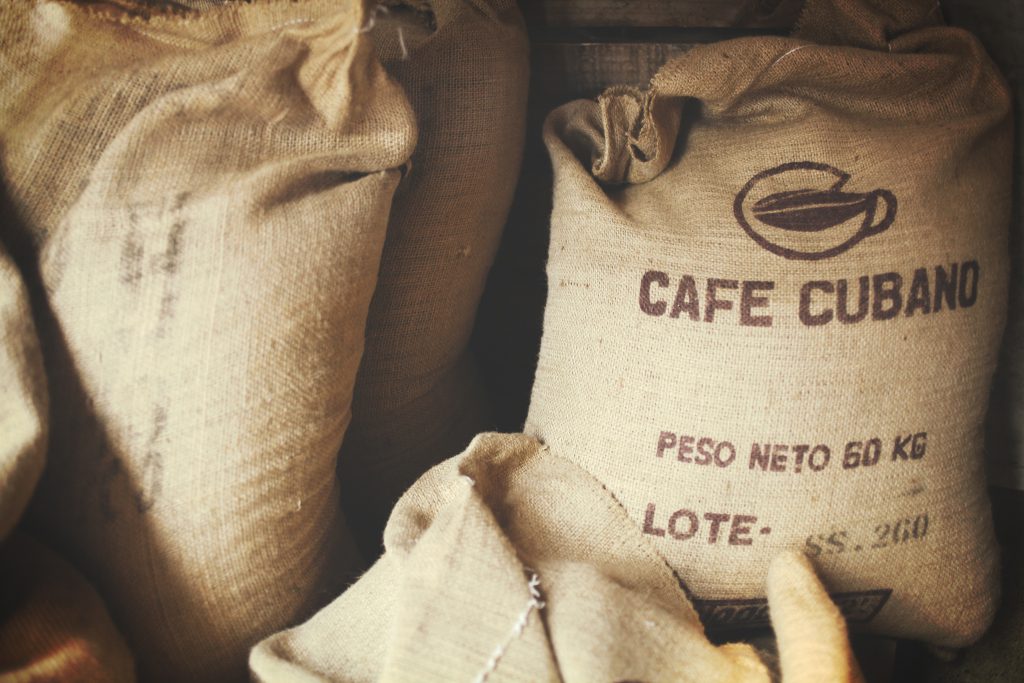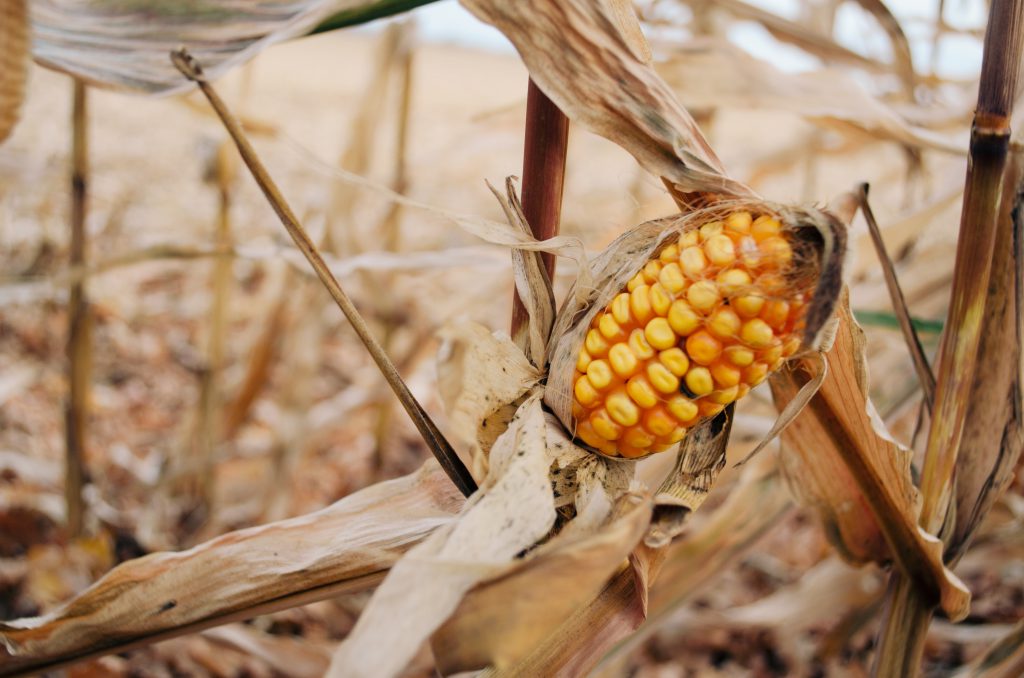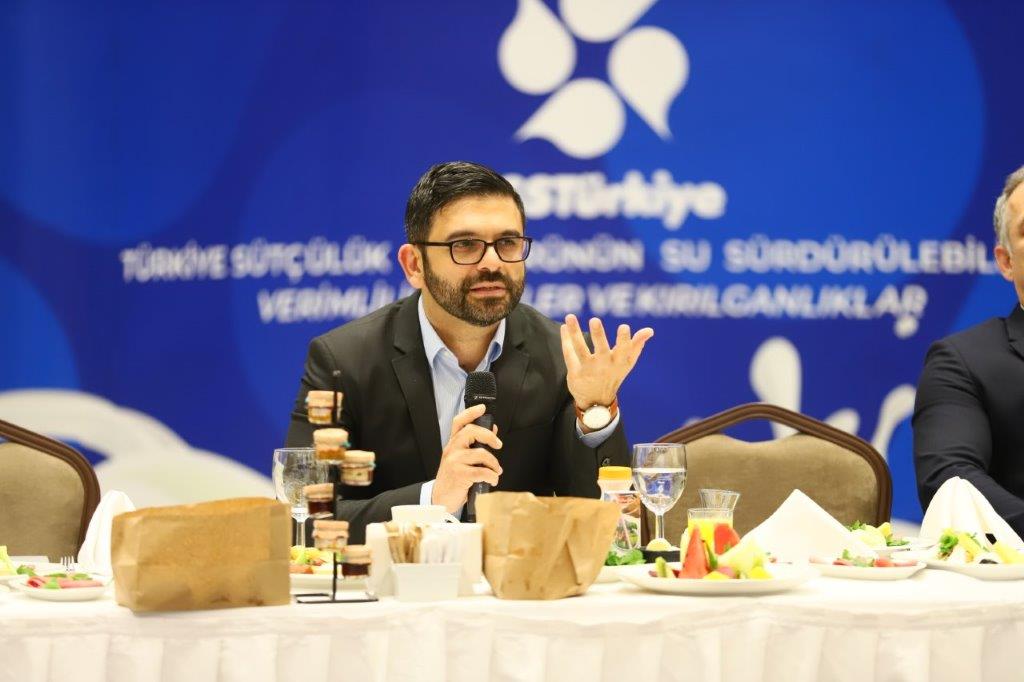Remote climate change impacts in the agriculture sector not only pose a significant risk to Europe’s food security, they can have serious economic consequences too. Agricultural products are not only destined for dinner tables, but also include crops like cotton – essential for textile and clothing production – or soybeans used for animal feed. We talked with Ertug Ercin of R2 Water, who is leading RECEIPT’s research on the sector, about which global agriculture hotspots are most critical for Europe and how a warming planet is bringing these dependencies into ever sharper focus.
Your team is examining the impact of remote climate change on agriculture in Europe. Where do you see the greatest need for this kind of sector-specific information?
We want to reach two groups of external stakeholders in particular: businesses who source raw materials and commodities from outside Europe, and policymakers interested in food sustainability and security, international development and bilateral trade relationships. The storylines we are developing highlight how interconnected our economy and food supply chains are, and how dependent Europe is on other regions that are vulnerable to extreme climate events.
What are the challenges of communicating this climate information to the target groups you are trying to reach?
The biggest challenge is making the information relevant and explaining why it is urgent to incorporate these research insights into business strategies and policies. For example, imagine you are a dairy producer in the Netherlands who sources soybeans from Brazil. If we tell you that climate change will directly impact soy production in Brazil, you might well think “then I will just buy from Argentina or the USA”. But if we can highlight the interconnections, and explain how climate-driven events can increase the price of raw materials across production locations – well, that will catch the attention of any business. Likewise, if we talk about disruption in the availability of supplies so that Europe’s chocolate industry, for example, can grasp how a big climatic hazard in West Africa might fully cut off the source of its raw material, cacao, people will understand it’s an issue that can’t be ignored.

You mention cocoa production in Ghana and soy in Brazil – how do you identify which are the real global hotspots where climate change will have the biggest impact on Europe?
Our analysis maps more than 1,600 commodities traded globally, tracing the origins of the major crops we are dependent on here in Europe – keeping in mind that we might not directly buy soy beans but soy oil, or we may purchase cotton not as as a crop but in the form of a t-shirt. We look at these commodities from three perspectives: food security, economy, and supply chain. Moreover, we only include commodities for which Europe’s import dependency is over 25%. This approach highlights a shortlist of nine key products: soybeans, palm oil, bananas, sugar cane, sunflower, coffee, cacao, rice and cotton. Next, we need to understand which production locations are sensitive to drought and water scarcity, and where Europe’s major trading partners are located. On this basis we have identified three regions that are critical for Europe: Brazil/Argentina, Southeast Asia, and West Africa.
And which are the main climate-driven risks that can impact agriculture in these regions?
Looking at the example of cacao in West Africa, drought is certainly a major issue – whether due to less precipitation or because temperatures and evaporation are too high. For Brazil, on the other hand, it was a big El Niño event in 2015 that led to drought in surrounding areas, reducing soy yields by 50-60%. We select these kinds of events to build our storylines because we can take historical facts and use modelling to show possible future outcomes under different warming scenarios: the same event might become more intense or happen more often, for example.

Which partners are involved in this research, and how do you work together?
R2 Water is leading this work with three scientific partners: the Potsdam Institute of Climate Research is providing climate change datasets, the International Institute for Applied Systems Analysis is focusing on socioeconomic impacts, and Vrije Universiteit Amsterdam is examining climate stresses and extreme weather events. Our team also includes societal partner Solidaridad, which works with developing countries on agricultural supply chains and has partnerships with farmers in West Africa, Brazil, and Southeast Asia. They can bring first-hand knowledge of the climatic issues facing agriculturalists in these regions.
Looking to the question of broader systemic climate risks, where do you see connections between your research on agriculture and the other sectors covered by RECEIPT?
In particular I see interlinkages with RECEIPT’s work on international development: if agricultural food production decreases in certain hotspots, this could cause food insecurity and migration within these regions. There are also links between the cotton storyline and manufacturing: if you are an apparel brand in Europe, the cotton supply chain is very important. Coastal infrastructure plays an important role too, because ports are central to agricultural commodity flows – you can’t ship soybeans if ports are closed because of a cyclone. So it’s all interconnected.

Finally, what is the biggest impact you hope to achieve with the RECEIPT research?
For me, it’s that global climate change would be understood more strategically by the stakeholders that will be increasingly affected so that they can prepare and mitigate risks. Businesses are not currently very interested in externalities and interconnections, so we have to raise awareness of why they need to look at what’s happening outside of Europe too. Similarly, emerging policies need to take a holistic view of supply chains and integrate global climate risks to sustain our economic and food security in coming years. Ultimately, it would be great to see Europe directing investment towards these areas to minimise the impacts – because it’s not only matter of humanitarian concern or geopolitical positioning, it is fundamentally in Europe’s own economic and social self-interest. EU policymakers and businesses have not yet fully woken up to this.
If RECEIPT can quantify the impact of remote climate risk and show chains of cause-and-effect through storylines, then we can demonstrate that climate change in other parts of the world is not just making sea levels rise in Southeast Asia, but – through trade, supply chains and multiple global interconnections – it directly affects how we live here in Europe. If we can develop people’s perception of these interconnections, that will be one of RECEIPT’s biggest contributions.
Get more information about our storylines on agriculture here.
Ertug Ercin is a water management and agriculture scientist at R2 Water, with over 15 years’ experience researching trade, agriculture, water and sustainability. He specialises in water accounting, water use and allocation, river basin management, water efficiency, water risks and the impacts of climate change and weather extremes on water resources and economies. He has also worked with international organisations like FAO and IFC on sustainable supply chains and the impact of extreme weather events and climate change on traded agricultural good and commodities.
Published on : 21 June 2020
